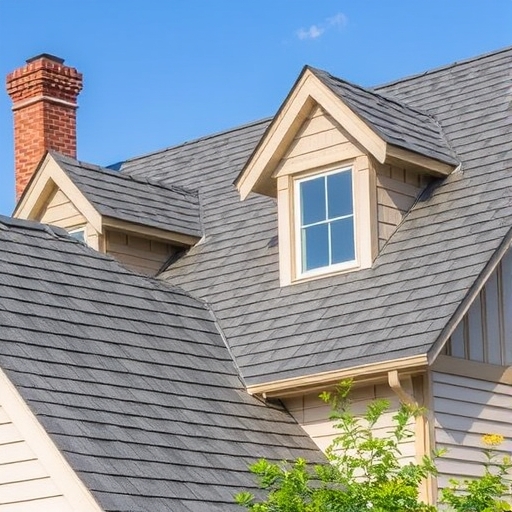Can You Paint Shingles? A Comprehensive Guide
When it comes to home improvement, one of the most common questions homeowners have is whether they can paint their shingles. Whether you’re looking to refresh your home’s appearance, change the color, or extend the life of your roofing material, painting shingles can be a viable option. In this guide, we’ll explore the various aspects of painting shingles, including the types of shingles, the pros and cons of painting, the process involved, and much more.
Understanding Shingles
Before diving into the painting process, it’s essential to understand the different types of shingles and their characteristics.
Types of Shingles
1. Asphalt Shingles
- Most common type used in residential roofing.
- Available in two main types: 3-tab and architectural.
- Cost-effective and easy to install.
- Made from cedar, redwood, or pine.
- Provide a natural aesthetic but require more maintenance.
- Prone to rot if not properly treated.
- Durable and long-lasting.
- Resistant to extreme weather conditions.
- Can be painted, but requires special paint.
- Made from natural stone.
- Highly durable and can last over 100 years.
- Painting is generally not recommended due to its weight and natural beauty.
- Made from a mix of materials, including rubber and plastic.
- Designed to mimic the look of wood or slate.
- Can be painted, but check manufacturer guidelines.
- Aesthetic Appeal: Changing the color of shingles can dramatically improve the look of your home.
- Protection: A quality paint can provide a protective layer against UV rays, moisture, and other environmental factors.
- Longevity: Painting can help extend the life of your shingles by preventing damage from weather elements.
- Energy Efficiency: Lighter colors can reflect sunlight, helping to keep your home cooler and reduce energy costs.
- Cost-Effective: Painting is often cheaper than replacing shingles.
- Customization: You can choose a color that matches your home’s exterior.
- Improved Longevity: Protects shingles from the elements, potentially extending their lifespan.
- Faster Process: Painting can be completed in a fraction of the time it takes to replace shingles.
- Limited Lifespan: Paint may need to be reapplied every few years.
- Potential Damage: Improper painting techniques can damage shingles.
- Warranty Issues: Painting may void manufacturer warranties.
- Mold and Mildew Growth: If not done correctly, paint can trap moisture, leading to mold growth.
- Inspect for Damage: Look for cracks, curling, or missing shingles. Damaged shingles should be repaired or replaced before painting.
- Check for Mold: If you see mold or mildew, treat it with a cleaning solution.
- Use a Pressure Washer: Remove dirt, debris, and any loose paint.
- Apply a Cleaning Solution: Use a mixture of water and bleach or a commercial cleaner specifically designed for roofs.
- Rinse Thoroughly: Ensure all cleaning solutions are washed away.
- Use Roof-Grade Paint: Select a paint specifically designed for shingles that can withstand weather conditions.
- Consider Color: Light colors reflect sunlight, while dark colors may absorb heat.
- Paintbrushes or rollers
- Paint sprayer (optional)
- Ladder
- Drop cloths
- Safety goggles and mask
- Begin painting from the top of the roof and work your way down. This ensures that any drips will fall onto the unpainted sections.
- Use a brush or roller to apply the first coat of paint evenly.
- If using a sprayer, ensure even coverage and avoid overspray on surrounding areas.
- Follow the manufacturer’s instructions for drying times between coats.
- It’s generally recommended to apply at least two coats for full coverage.
- Once the final coat is dry, inspect for any missed spots or uneven areas.
- Touch up as needed for a smooth finish.
- Regular Inspections: Check for signs of wear, peeling, or damage every few months.
- Clean Annually: Clean your shingles annually to prevent mold and mildew buildup.
- Repaint as Needed: Depending on the quality of paint used, you may need to repaint every 5-10 years.
2. Wood Shingles
3. Metal Shingles
4. Slate Shingles
5. Composite Shingles
Why Paint Shingles?
Homeowners may choose to paint shingles for several reasons:
Pros and Cons of Painting Shingles
Pros
Cons
Preparing to Paint Shingles
Before painting your shingles, proper preparation is crucial. Here’s a step-by-step guide to ensure a successful outcome.
Step 1: Assess the Condition of Your Shingles
Step 2: Clean the Surface
Step 3: Choose the Right Paint
Step 4: Gather Necessary Supplies
The Painting Process
Now that you’ve prepared, it’s time to paint your shingles. Follow these steps for the best results.
Step 1: Start at the Top
Step 2: Apply the First Coat
Step 3: Allow to Dry
Step 4: Inspect and Touch Up
Maintenance After Painting
Once you’ve painted your shingles, ongoing maintenance is crucial to ensure longevity:
Comparison Table: Painting vs. Replacing Shingles
| Aspect | Painting Shingles | Replacing Shingles |
|---|---|---|
| Cost | Generally lower | Higher initial investment |
| Time Required | Faster process | Time-consuming |
| Lifespan | 5-10 years (with maintenance) | 20-50 years (depending on material) |
| Aesthetic Options | Customizable color | Limited to available materials |
| Warranty Impact | May void warranty | Usually maintains warranty |
| Environmental Impact | May require frequent repainting | Minimal (if using sustainable materials) |
Frequently Asked Questions (FAQ)
Can all types of shingles be painted?
Not all shingles are suitable for painting. Asphalt and composite shingles can typically be painted, while wood, metal, and slate shingles may have specific considerations. Always check with the manufacturer.
How long does painted shingles last?
With proper preparation and maintenance, painted shingles can last between 5 to 10 years before needing a refresh.
Will painting shingles void my warranty?
Yes, painting shingles may void the warranty provided by the manufacturer. It’s essential to check the warranty terms before proceeding.
Can I paint my shingles myself?
Yes, many homeowners choose to paint their shingles themselves. However, ensure you follow the proper preparation and painting techniques for the best results.
What type of paint should I use for shingles?
Always choose a paint specifically designed for roofing materials. Look for options that are UV-resistant and suitable for the type of shingles you have.
Conclusion
Painting shingles can be an effective way to enhance your home’s appearance, provide added protection, and extend the life of your roofing material. However, it’s essential to weigh the pros and cons carefully and consider the type of shingles you have. With proper preparation, the right materials, and ongoing maintenance, you can achieve a beautiful and long-lasting finish. Always consult with professionals if you’re unsure or if your shingles require significant repairs before painting. Happy painting!

